
Starting June 1st, 2023 Our warehouse fee will be $0.65/cubic foot per month
In effort to lower the warehouse storage fee during inflation, we have went narrow aisle racking.This construction took us four months but the project is finally completed. With narrow aisle racking, we are able to drop storage by 24%.We as partners will go through this inflation together.
05/12/2024
Long-haul transportation stands as the linchpin in the contemporary transport infrastructure. Typically encompassing the movement of goods or freight over distances exceeding 400 km, this logistical feat is predominantly accomplished through trucking.
Delving into the essence of long-haul transportation and offering insights into the future landscape of long-haul trucking, WorldCraft Logistics provides a comprehensive breakdown of the term and shares valuable tips for optimizing long-haul services.
Efficient long-haul transportation plays a pivotal role in facilitating the seamless movement of goods across major urban centers, requiring meticulous oversight for optimal performance. Employing unified line haul transportation logistics becomes imperative for operators in monitoring stock effectively across extended distances.
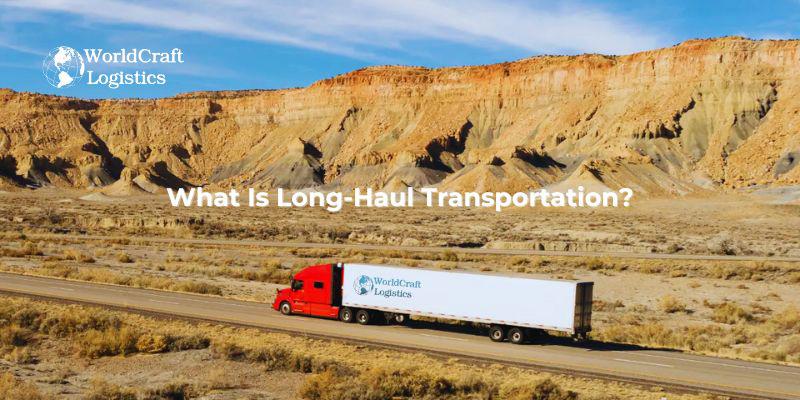
In the realm of transportation, two primary categories stand out – long-haul and line-haul. Long-haul transportation is designated for the conveyance of goods across expansive distances, whereas line-haul transportation is tailored for briefer journeys.
The primary distinction between long haul and line haul transportation lies in the extent of the goods' journey. Long-haul transport entails the movement of goods across extensive distances, contrasting with line-haul transport, which is confined to shorter excursions.
Furthermore, diverging timelines characterize these two transport modes. Long-haul transport demands a lengthier duration for completion due to the increased distance covered, whereas line-haul transport can be swiftly concluded owing to the brevity of the distance involved.
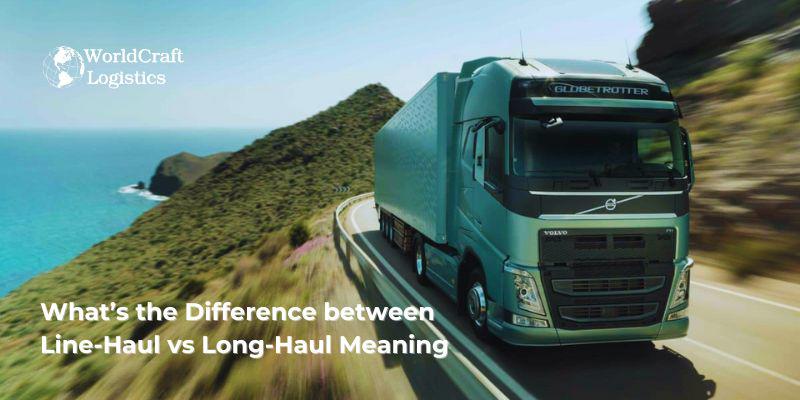
A pivotal contrast surfaces when evaluating the economic aspects. Long-haul transport incurs higher costs attributed to the extended distance covered, while line-haul transport proves more economical due to the shorter travel distance. In a direct comparison of distance covered versus associated costs, long-haul transportation consistently emerges as the more expensive alternative.
These knowledge articles are for you and should not be missed!
👉 The best guide to Overnight Shipping & everything you need to know
👉 The 5 BIGGEST differences between FTL and LTL shipping
👉 What is a Freight Truck? The different types and what they haul
Efficient long-haul trucking hinges on proper management, a task made less complex through the utilization of advanced technology, specifically long-haul trucking software. This software plays a pivotal role in optimizing routes, monitoring driver activities, and facilitating comprehensive coordination for the seamless execution of long-haul trucking operations.
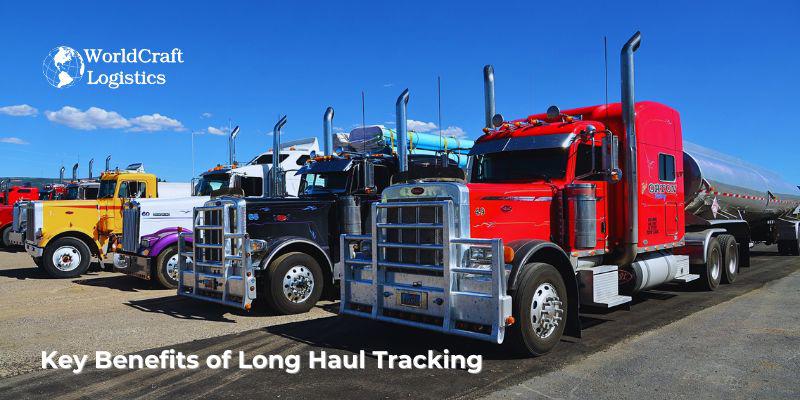
In the realm of commercial transportation, orchestrating manual delivery schedules amidst a fleet of vehicles poses a formidable challenge for business proprietors. However, the integration of long-haul trucking software presents an automated solution, streamlining the scheduling process and allocating tasks to drivers based on their availability and designated routes. Leveraging advanced algorithms, this cutting-edge technology factors in elements like traffic and weather conditions, delivery personnel efficiency, ultimately crafting an optimal schedule for seamless long-haul logistics.
Long-haul tracking revolutionizes real-time visibility for extended journeys, factoring in traffic, weather, and vehicle fuel consumption. Leveraging GPS technology, it offers the optimal route for efficient long-haul deliveries. This not only keeps delivery managers informed but also guarantees timely data updates for all stakeholders, including drivers, through a user-friendly mobile application, live notifications, and alerts.
In the realm of long-haul trucking, where drivers spend extended periods on the road, diligent monitoring of their performance becomes a crucial task for business proprietors. The practice of long-haul tracking facilitates the assessment of crucial metrics such as speed, braking proficiency, and route deviations, all of which wield a direct impact on fuel consumption and delivery turnaround times. Maintaining a vigilant check on these variables simplifies the evaluation of driver performance, ensuring compliance with service-level agreements by logistics partners.
Maintaining transparent communication with customers regarding their deliveries proves to be instrumental in elevating their overall satisfaction with the business. The implementation of extended tracking mechanisms allows the company to guarantee timely and intact deliveries, thereby bolstering long-term customer trust. Cutting-edge logistics tools empower businesses to furnish real-time updates on delivery advancements, yielding precise Estimated Time of Arrivals (ETAs). This not only significantly diminishes the necessity for customers to contact shippers for delivery updates but also enables them to strategize contingency plans for potential delays, emergencies, and exceptions.
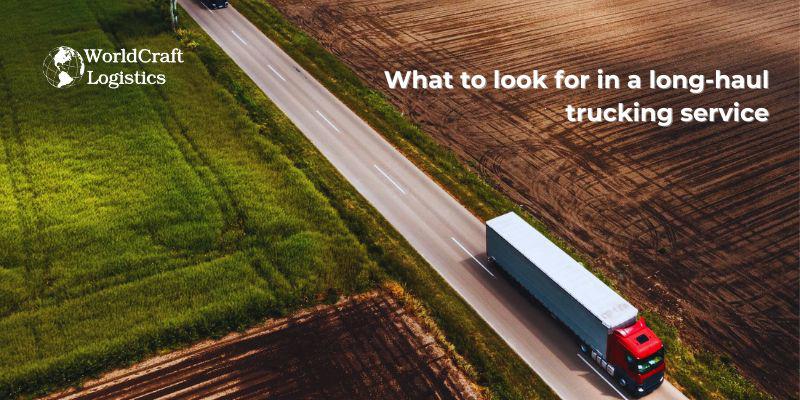
Amidst the prevailing challenges confronting the long-haul trucking sector, conducting thorough research before selecting a trucking service has assumed heightened significance. Here are key factors to consider.
Foremost in consideration is unparalleled reliability. In the world of trucking services, time equates to money, and any lapses in meeting delivery deadlines can result in significant financial implications. Evaluating reliability is crucial, and one key indicator is customer reviews.
Analyzing feedback from previous clients provides valuable insights into their experiences. It's essential to bear in mind that a couple of negative reviews shouldn't be perceived as catastrophic. The real focus lies in identifying recurring patterns. If numerous customers consistently highlight issues like delayed deliveries or subpar communication, it serves as a clear warning sign.
The incorporation of cutting-edge technology into a provider's operations holds paramount importance. Utilizing tools such as fleet tracking, transportation management systems (TMS), and route planning plays a crucial role in augmenting transparency and operational efficiency.
An expansive network of partners is pivotal for enhanced coverage and service reliability, particularly in times of disruptions. The scale of the network also serves as a testament to the provider's capacity to address diverse shipping requirements across varied geographic locations.
The focal point lies in "effectiveness," surpassing mere consideration of "cost." While maintaining budgetary constraints is crucial, opting for the most economical choice may not always be the wisest decision.
The key lies in maximizing value for your investment, even if it entails a slightly higher expenditure for a service that aligns perfectly with your requirements.
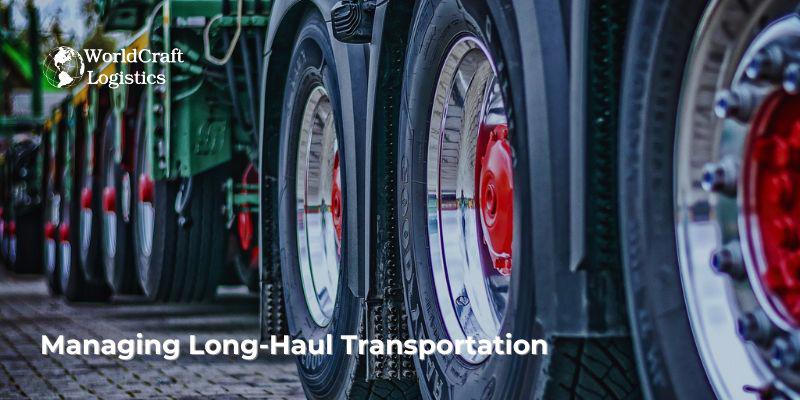
In the realm of transportation logistics, route optimization emerges as a pivotal process harnessing technology to pinpoint the optimal path for a vehicle's journey. This intricate calculation incorporates variables such as traffic congestion, adverse weather conditions, road closures, and ongoing construction projects. The overarching objective remains unaltered: to identify the briefest or speediest route available.
The ramifications of route optimization extend beyond mere navigational efficiency, profoundly impacting long-haul transportation. By curbing miles driven, reducing fuel consumption, and mitigating emissions, this process becomes an instrumental tool in enhancing overall operational effectiveness. The dividends also manifest in tangible savings of both time and financial resources, achieved through deftly sidestepping traffic bottlenecks and strategically charting the most resourceful route.
This strategic approach to route optimization is universally applicable across a spectrum of vehicles, spanning cars, vans, trucks, and buses. However, its significance is particularly pronounced in the context of protracted journeys, where its implementation not only streamlines operations but also serves as a prudent means of economizing time and costs.
Technology assumes a pivotal role in the surveillance of long-haul transportation drivers' performance. This data serves as a foundation for tailored training initiatives aimed at enhancing road safety.
Beyond bolstering safety measures, this technological advancement concurrently fosters efficiency. By comprehending drivers' utilization of time and resources, corporations can strategically modify routes and schedules, thereby optimizing time and cost savings for all stakeholders.
Strategic investment in long-haul transportation technology, exemplified by industry leaders like WorldCraft Logistics, emerges as a prudent decision for any enterprise dependent on long-haul transportation. Such an investment promises returns in the form of heightened safety standards, operational efficiency, and positive impacts on the bottom line.
In the realm of long-haul transportation, technology emerges as a key player in automating drivers' schedules. This not only guarantees adherence to timelines but maximizes the optimal utilization of their time. The automation of scheduling not only streamlines the process but also mitigates the risks of errors, thereby minimizing the likelihood of delays or cancellations.
A robust network of fulfillment centers and transportation partners distinguishes a proficient ecommerce shipping process from an outstanding one.
WorldCraft Logistics (WCL) has proven its prowess in transportation logistics through extensive trials with multiple clients. The Inventory Placement Program (IPP) is a standout feature that empowers merchants to consolidate their inventory in a single location. Upon its arrival, WCL takes charge, utilizing advanced inventory analytics and on-ground expertise to intelligently distribute the inventory across various fulfillment centers.
This strategic process not only brings inventory closer to demand points, significantly reducing delivery times, but also contributes to cost savings by minimizing the last-mile delivery distance. Additionally, WCL provides a comprehensive dashboard for heightened visibility into inventory management. The dashboard offers recommendations on inventory splits, updates on estimated versus actual stowed quantities, and discloses both estimated and actual completion dates.
This transparency proves invaluable for businesses, facilitating better planning and informed decision-making. Moreover, the dashboard includes freight tracking, ensuring a constant, clear overview of the inventory's journey. WorldCraft Logistics continues to redefine and optimize ecommerce shipping through its sophisticated logistics solutions.
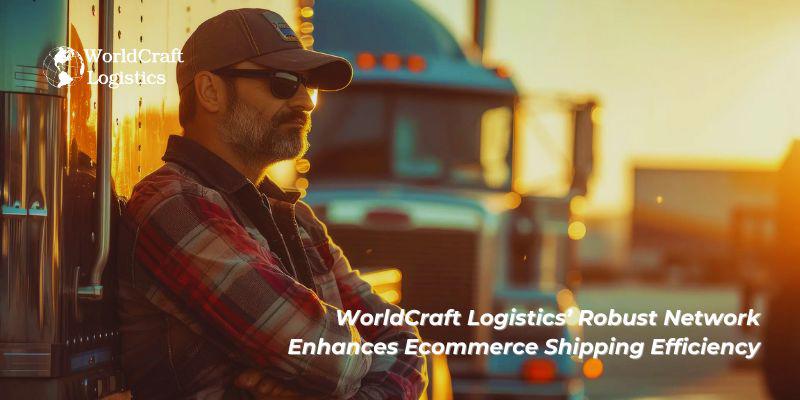
Learn more about our trucking service, which will transport your e-commerce shipments to storage in the United States at a reduced cost. Click below to reach the contact page, where you can seek guidance from a team of seasoned specialists 👇
SEO
Digital Marketing/SEO Specialist
Simon Mang is an SEO and Digital Marketing expert at Wordcraft Logistics. With many years of experience in the field of digital marketing, he has shaped and built strategies to effectively promote Wordcraft Logistics' online presence. With a deep understanding of the logistics industry, I have shared more than 500 specialized articles on many different topics.
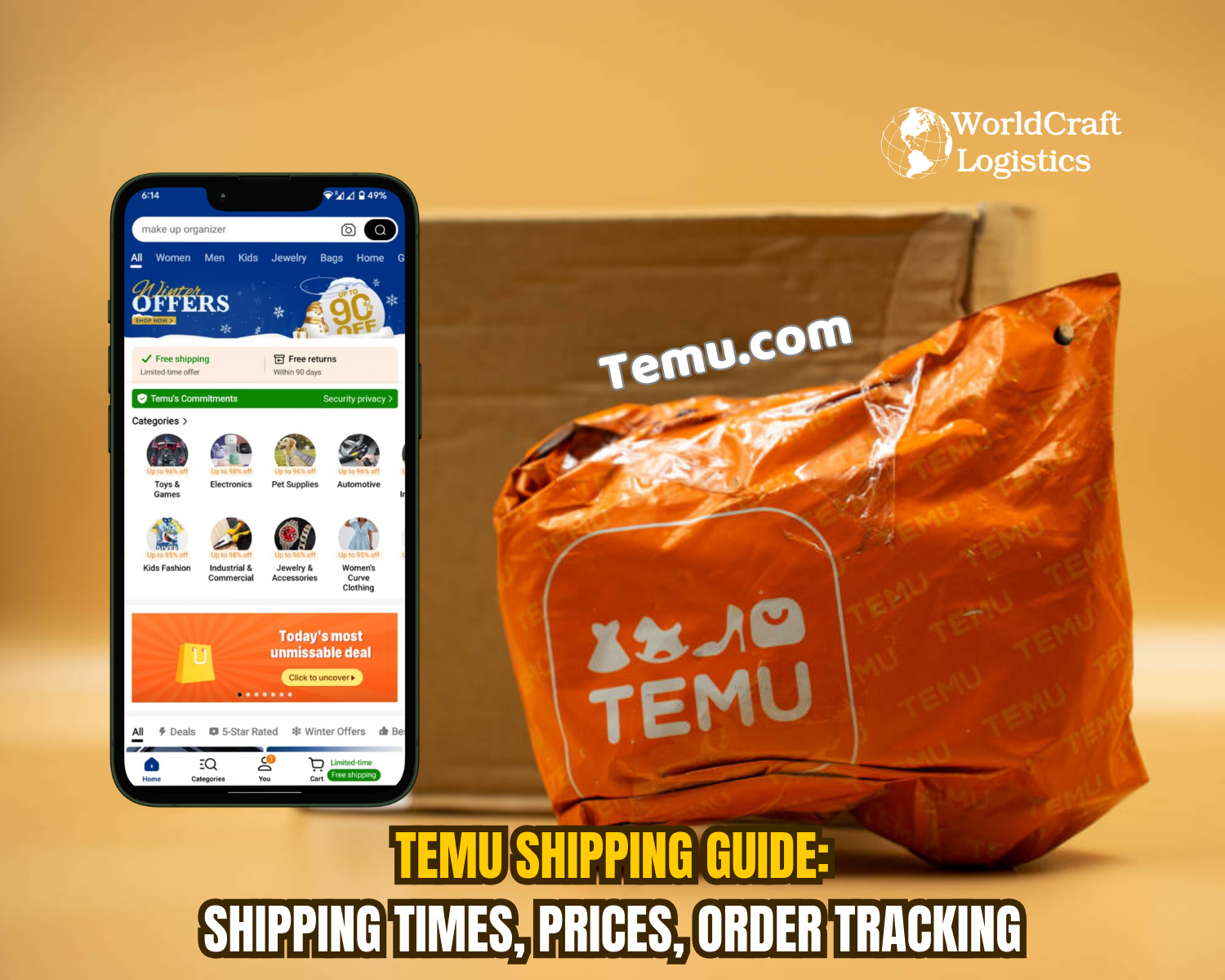
Education
01/05/2025
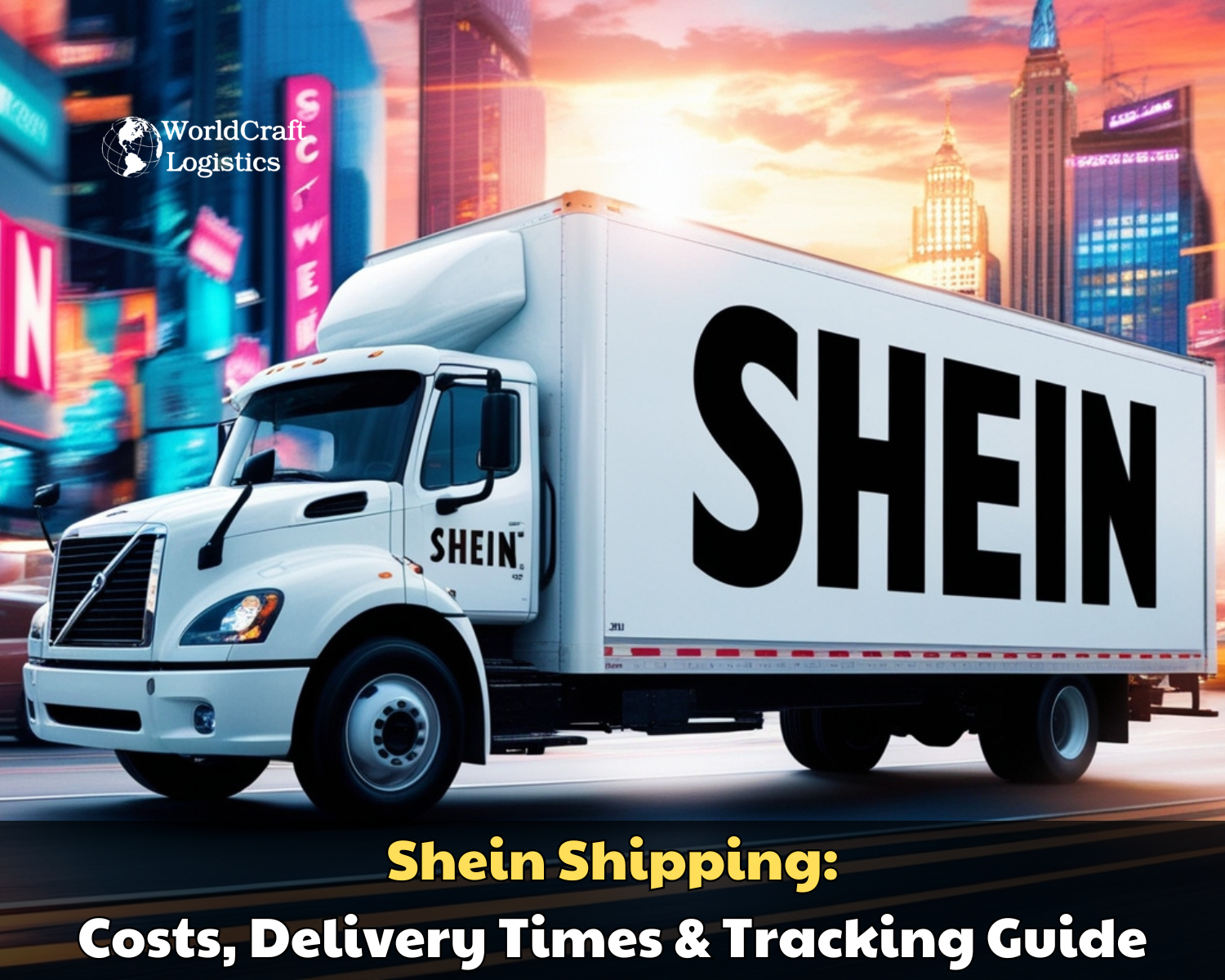
Education
02/18/2025
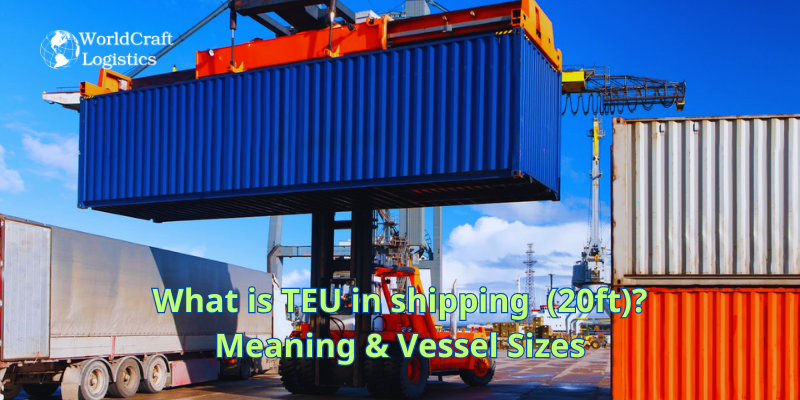
Education
01/01/2024
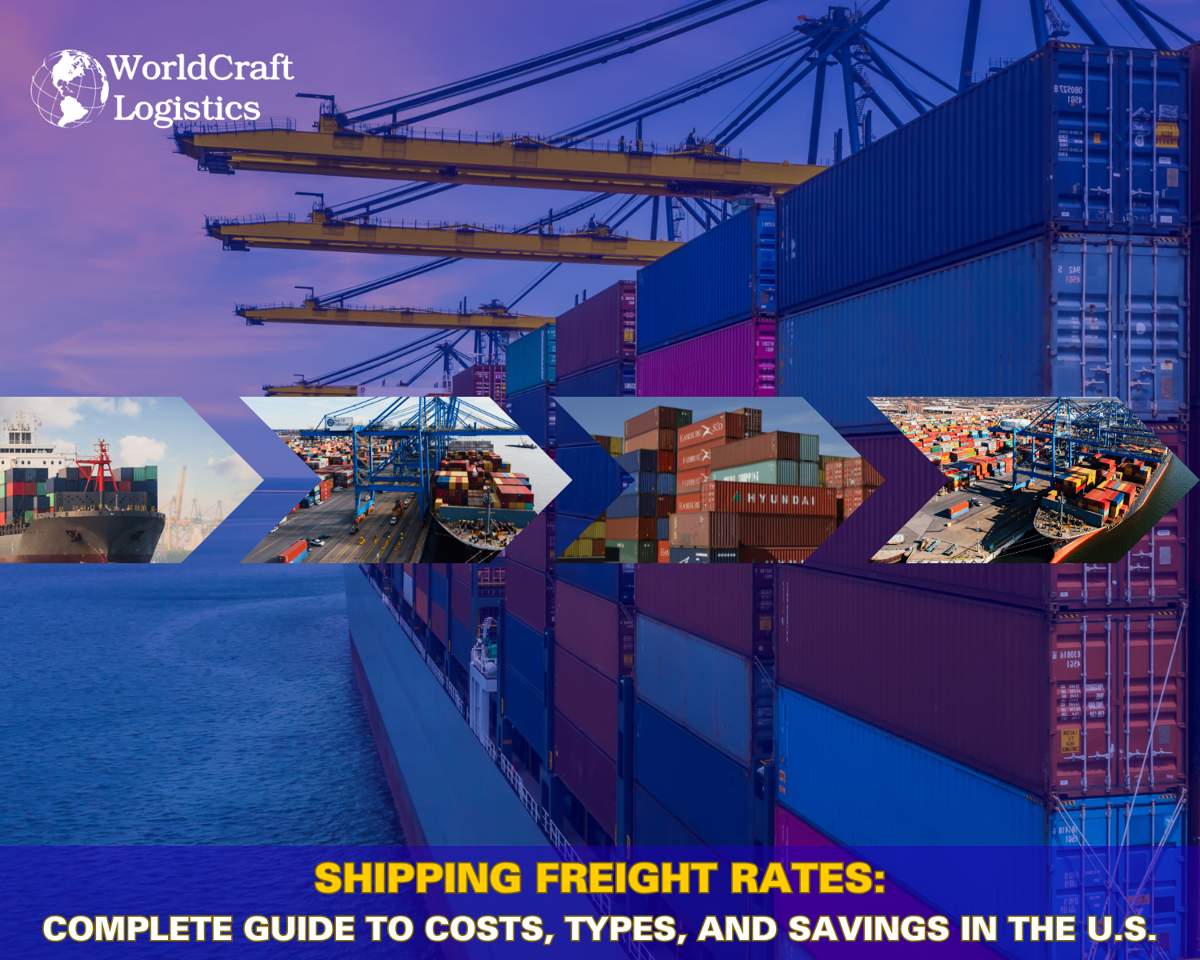
Education
09/09/2025
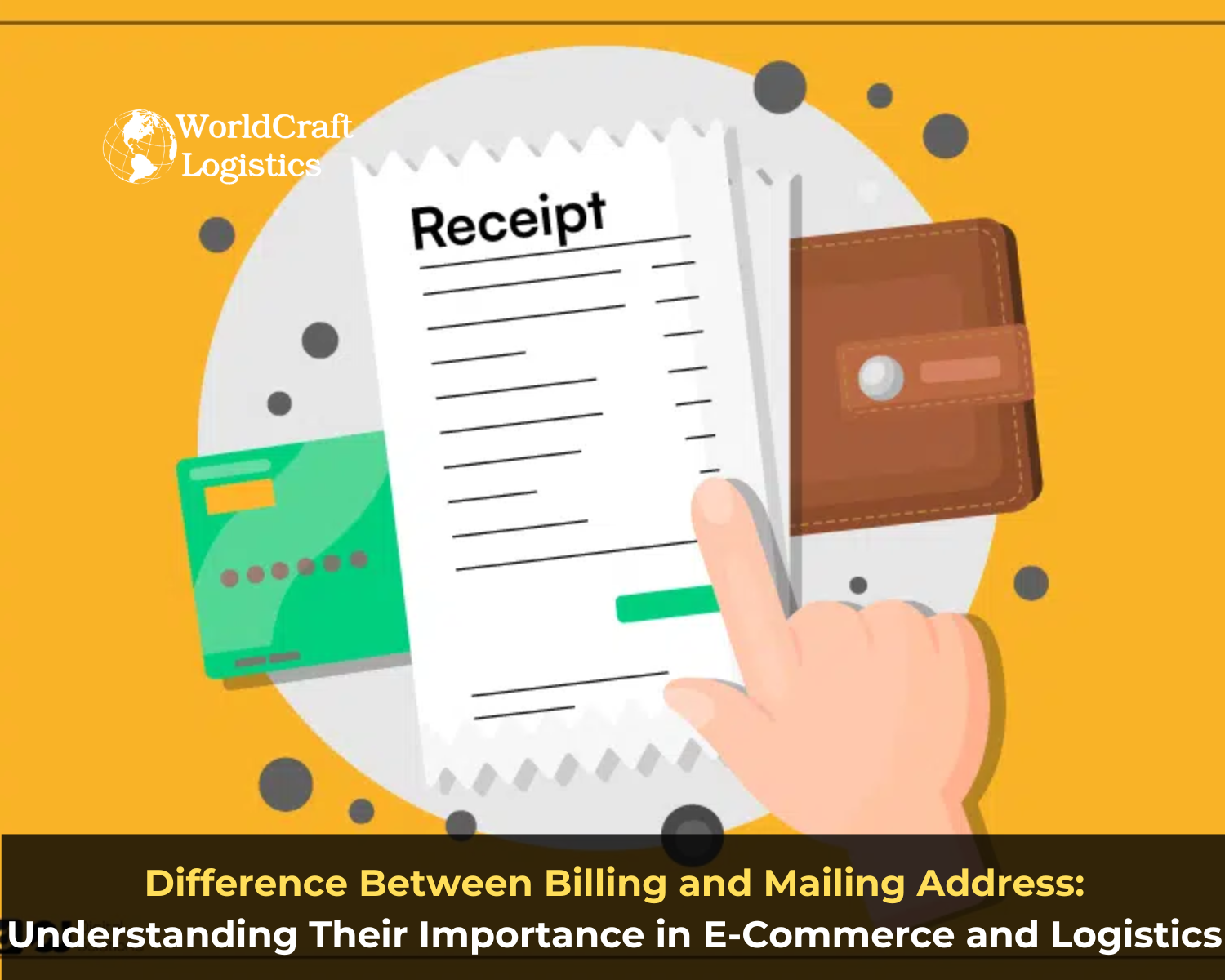
Education
08/28/2024